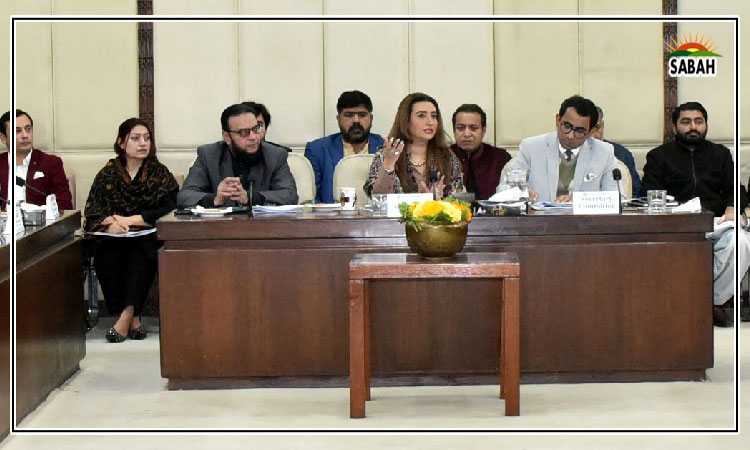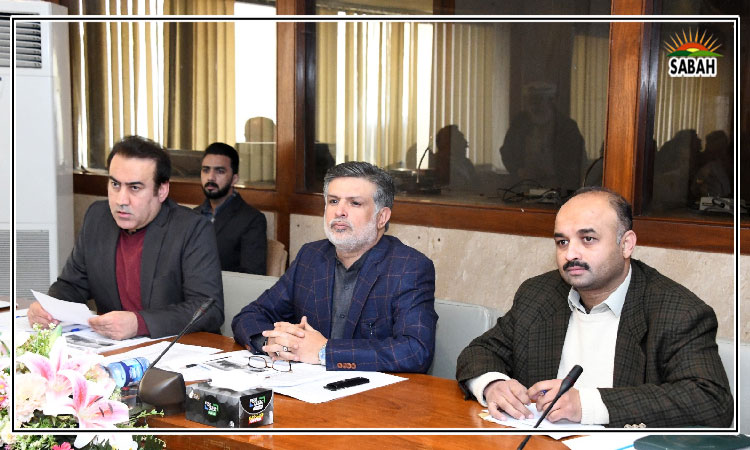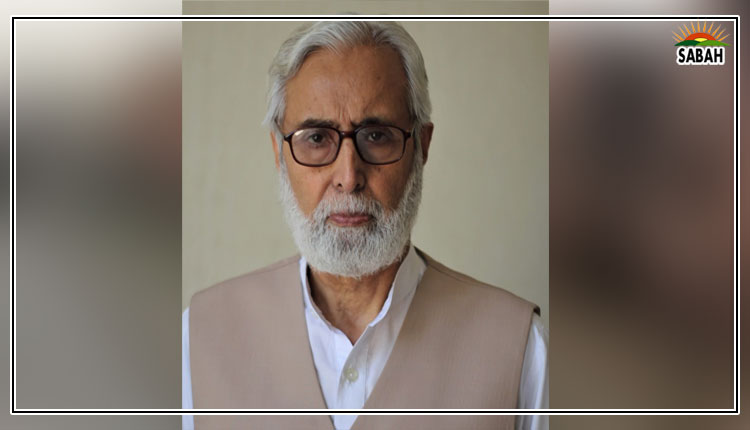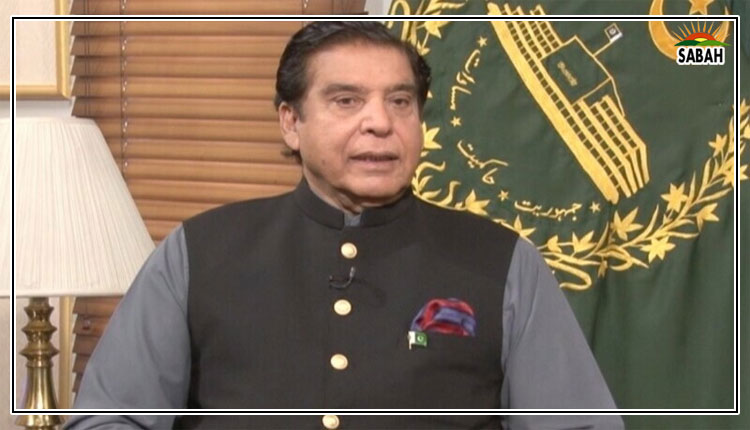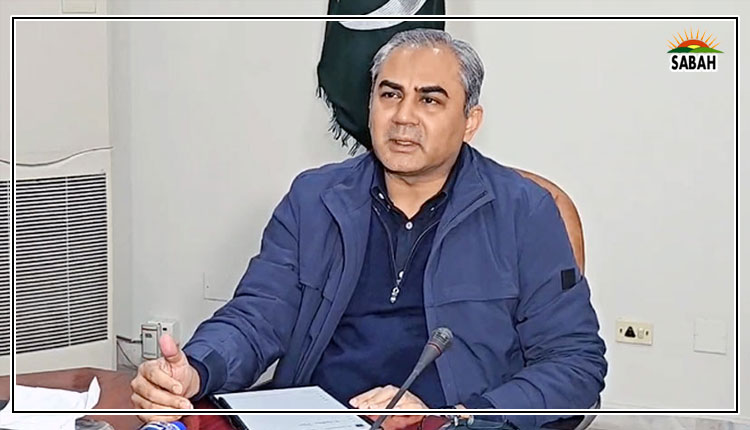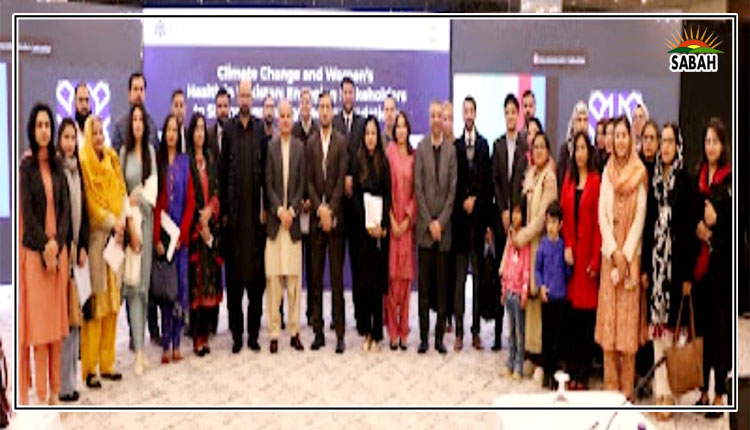Women’s access to SRH & FP facilities critical for development post climatic disasters: Experts say at a forum organized by UNFPA in collaboration with SDPI
ISLAMABAD, Dec 31 (SABAH): The experts from diverse fields united at a critical policy discussion to emphasize the urgent need for gender-sensitive climate change policies, particularly focusing on women’s health in Pakistan post climatic disasters like access to Sexual Reproductive Health (SRH) and Family Planning (FP) facilities.
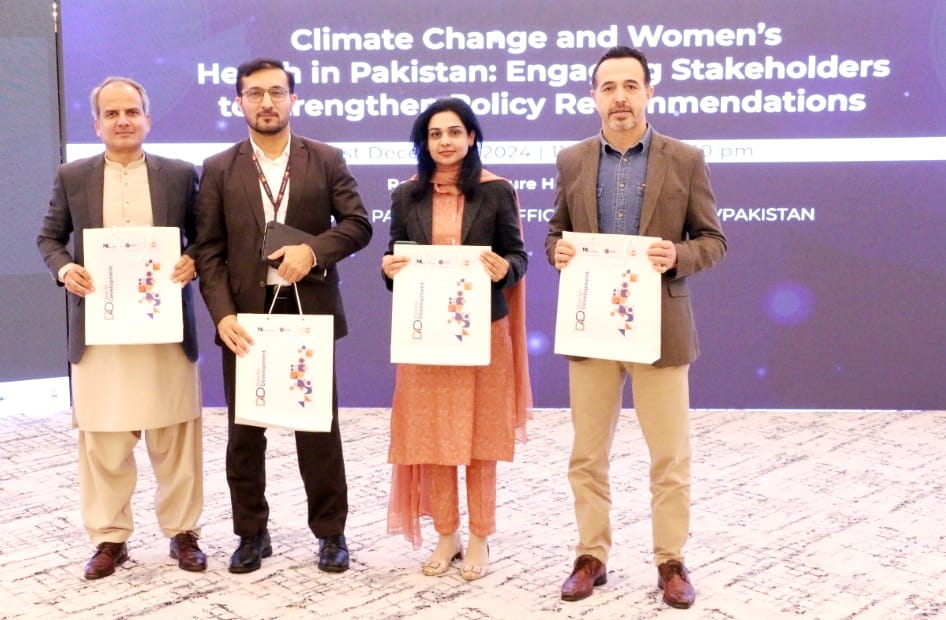
The forum, organized by United Nations Population Fund (UNFPA) in collaboration with Sustainable Development Policy Institute (SDPI) highlighted how climate change disproportionately affects women, especially in vulnerable regions like Pakistan, and the necessity for tailored solutions in disaster management and health response.
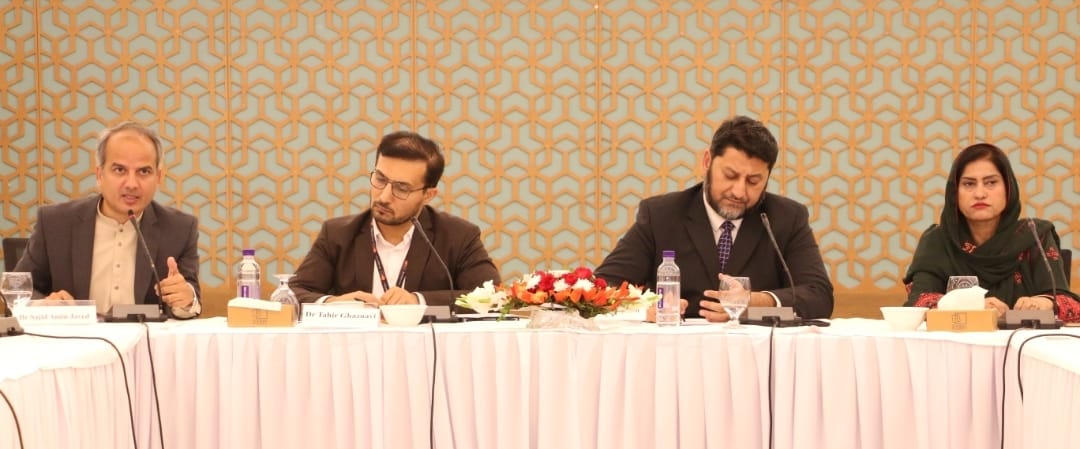
Dr. Muhammad Tahir, UNFPA’s Humanitarian Resilience Coordinator, opened the session, stressing that climate change is a harsh reality that requires urgent policy action. He pointed out the rising health complications for both men and women, particularly reproductive health issues exacerbated by extreme weather events like heatwaves and floods. He further emphasized how climate-induced displacement, stress, and air pollution are worsening the situation for women, increasing anxiety, and even leading to school dropouts and forced marriages for girls.
Aisha Moriani, Secretary of the Ministry of Climate Change and Environmental Coordination, emphasized the distinct needs of women during climate-related disasters. She noted the crucial role of grassroots civil society in shaping these policies and highlighted the importance of shifting the narrative on Pakistani women, showcasing them as empowered individuals rather than victims. She advocated for the inclusion of women’s health needs in disaster preparedness, particularly in SRH, GBV, and access to clean water.
Dr. Hadia Majid, Associate Professor at LUMS, presented findings on the devastating effects of floods and droughts on women in Pakistan. Her research revealed a significant rise in gender-based violence and the challenges women face in accessing essential services like maternity care. Dr. Majid also highlighted gaps in current policies, especially around sexual and reproductive health (SRH) and family planning (FP) during disasters, and called for better inter-agency coordination and data-driven, gender-responsive strategies.
Dr. Rafi Amir-ud-Din from COMSATS University shared a sobering report on the increase of gender-based violence (GBV) in flood-affected districts, where surveys showed a shocking 91% increase in GBV cases. He called for stronger policy implementation, legislative changes, and better coordination to address SRH and GBV needs during disasters, which remain largely unaddressed in current disaster management frameworks.
Dr. Rasheed Ahmed, Program Analyst for Humanitarian Affairs at UNFPA, highlights the significant and disproportionate impact of climate change on women’s health. Women, especially those in vulnerable communities, are more likely to experience the health risks associated with environmental disruptions due to social, economic, and cultural factors.
Climate-related events such as extreme heatwaves, flooding, and droughts affect women’s access to healthcare, food, and clean water, leading to a higher risk of malnutrition, waterborne diseases, and heat-related illnesses. Furthermore, women in low-income regions are often the primary caregivers, which increases their exposure to these risks while simultaneously limiting their ability to seek medical assistance, he added.
Climate change exacerbates existing gender inequalities, with pregnant women facing higher risks of maternal complications in the face of disasters, poor sanitation, and lack of access to healthcare facilities. Dr. Ahmed emphasizes that women’s health must be a central focus in climate adaptation strategies, calling for policies that address both the gendered impact of climate change and the need to strengthen women’s resilience through education, healthcare, and participation in decision-making processes related to climate action.
The event concluded with Dr. Tahir’s call for a multi-sectoral approach to addressing women’s health as a global development indicator. He stressed the importance of collective action from local communities, policymakers, academia, and international partners to create resilient, gender-sensitive climate policies. The gathering underlined the urgent need for the integration of gender considerations in disaster response and climate finance to safeguard the health and well-being of women in a changing climate.




